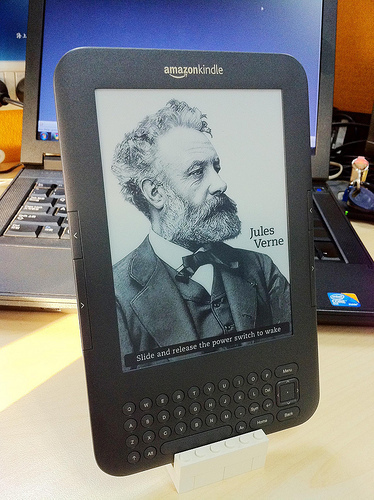Breaking the Reader-Author Boundary

I don't know how many of you have Kindles, or any sort of e-reader, but I ran across something last week, and I think it's relevant for anyone who reads or writes at all. On The New Yorker's book blog, Mark O'Connell posted "@Reading in the Age of @Author," about a new feature in the beta-testing stages for the Kindle. The feature is called @Author, and it will allow readers to highlight certain sections of text (in books from participating authors) and ask the author questions about it.
There are many factors at play here, from super-connectivity in our technological age, to the process of reading itself. However, I think the most crucial is what this means for the role readers play in creating meaning. As O'Connell points out, the prevailing attitude has long been that an author is separate from the work, and that "the reader's interpretation should carry just as much weight as the author's intention." Much to the consternation of many high school English teachers, I agree with this statement, and I'd wager many of you do, too. Thus, my biggest fear about the @Author feature is that it will demote the reader's experience and interpretation to a thing of lesser importance.
On the flip side of the coin, @Author could facilitate some great analytic conversation about a piece of literature—conversation that readers don't usually get to have with the creator of that work. As an author, I would be very interested in this conversation, and finding out what readers are taking away from something I have written.
What do you think, Wrimos? Do you see danger, or exciting prospects? And does your opinion of @Author change when you consider it from either side of the author/reader fence? (Also, it's a shame @Author can't get us in touch with deceased writers! Now there is a piece of technology I would jump on.) I want to know what you think!
– Paige
Photo by Flickr user bfishadow.
Chris Baty's Blog
- Chris Baty's profile
- 63 followers



